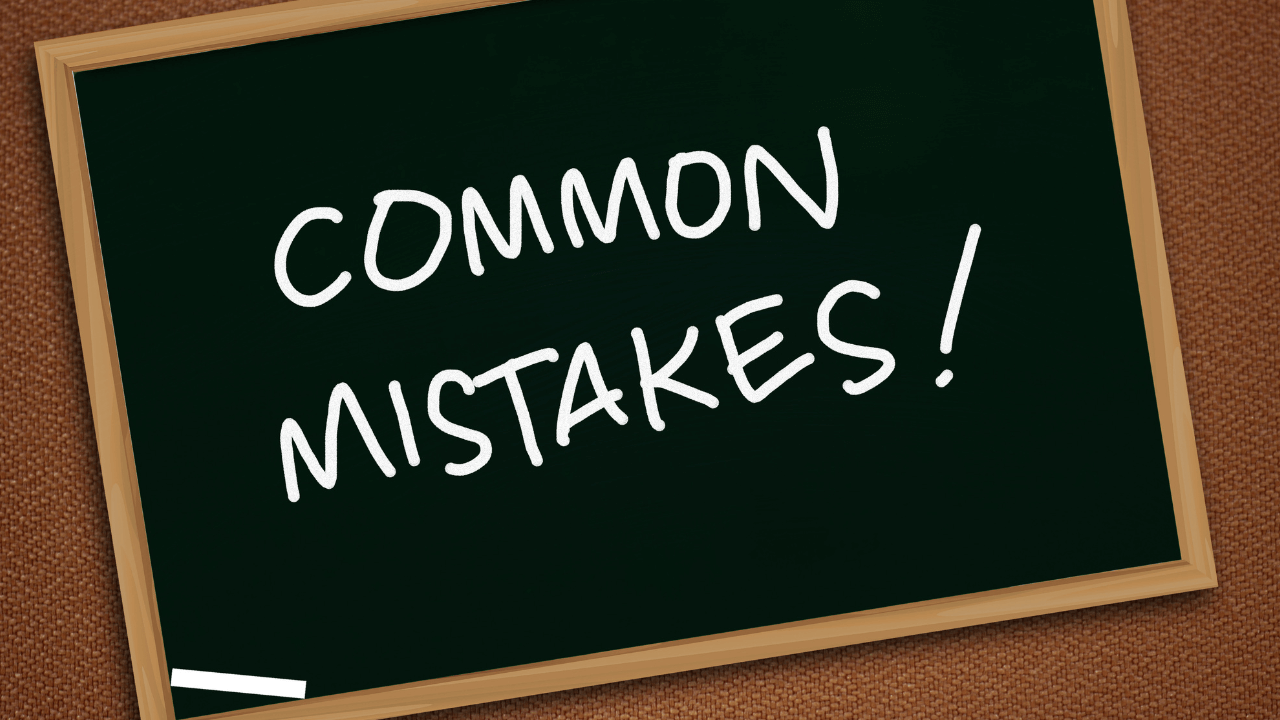Language:
Top Networking Mistakes to Avoid as a Founder

Tony Hayward, the former CEO of BP — his name might ring a bell, especially in connection with the Deepwater Horizon oil spill in 2010.
It was a challenging time for him, to say the least.
Hayward made the rounds at several industry events during and after the disaster, and let’s just say, instead of easing the situation, things didn’t quite go as planned.
How, you ask? Well, let’s just say his networking skills were a bit… off.
In one particular unforgettable moment, Hayward quipped, “I want my life back,” while the Gulf of Mexico was still reeling from the spill.
Not exactly the best way to read the room given the circumstances, right?
As you can imagine, that didn’t sit well with anyone. The backlash was swift, and those tone-deaf comments didn’t just tarnish his reputation — they played a significant role in the challenges that followed.
Hayward eventually resigned, but the damage? It was already done.
This whole saga is a textbook example of how not to handle public and industry interactions.
It’s a reminder that networking isn’t just about shaking hands and passing out business cards — it’s about understanding the situation, the people in the room, and knowing when it’s better to keep certain thoughts to yourself.
That leads us perfectly to today’s topic: the top networking mistakes you’ll want to avoid as a founder.
Whether you’re at a big conference or just grabbing coffee with a potential partner, dodging these blunders will help you make connections that actually stick — and keep you from becoming the next networking slip-up that changed everything.
And while avoiding networking blunders is crucial, it’s just one piece of the puzzle for founders.
Starting a business is like walking on a road filled with sharp gravel — one misstep and you might trip and hurt your legs.
That’s where doola steps in — not as another business tool, but as your partner for getting the foundational stuff right.
From forming your business entity to navigating taxes and keeping your finances in check, we help you dodge the common pitfalls that can trip up even the most seasoned entrepreneurs.
Now, let’s dive in and break down these mistakes so you can keep your business game tight.
Steer Clear of the All-About-Me Show

It has happened to most of us. When you’re at a business event where the vibe is relaxed, and the chatter feels more like a casual hangout than a formal networking session.
It’s tempting to let loose and start talking — maybe even a bit too much — about yourself.
But here’s the thing: No matter how chill the setting, remember the main agenda is networking.
So, instead of launching into a full-on self-promotion tour, take a breath.
Have a quick, engaging intro ready that’s less “all about me” and more about starting a real conversation. And, get into a habit of listening—like, really listening.
Because, honestly, networking is not just about what you can say; it’s about what you can hear.
You’d be surprised how much you can learn when you’re not the one doing all the talking.
Adam Grant, the Wharton professor who wrote Give and Take, puts it perfectly: “The most meaningful connections come from genuine curiosity.
When you ask thoughtful questions and actually listen, you’re not just chatting — you’re making the other person feel seen and valued.”
And isn’t that what we all want? To feel like we matter in the conversation?
So, next time you’re tempted to take over the spotlight, remember that the best networkers aren’t the ones who talk the most—they’re the ones who know when to pass the mic.
The connections that stick with you are usually the ones where you showed real interest in the other person, not just in your own story.
Don’t Risk a Networking Fail — Get the Do’s and Don’ts for High-Profile Connections Now!
Leave Your Buddies at Home: Your Friend Can Sit This One Out
So, you’ve got this big networking event coming up, and the thought of going alone feels a bit like showing up to a party where you don’t know a soul.
Naturally, you think, “I’ll just bring a friend.” It’s understandable — having a buddy by your side can make the whole thing feel less overwhelming.
But here’s the thing: please don’t do that. Never go to a business networking event with a friend.
Let us explain why it’s a bad idea.
When you have your pal with you, it’s so easy to slip into your comfort zone.
You end up spending the night chatting away, reminiscing about old times, and before you know it, the event’s over, and you haven’t met anyone new.
Sure, it’s easy, it’s comfortable, but it’s not productive. You’ll miss out on countless opportunities, and the whole point of networking is lost.
Allie Siarto, who’s shared her insights in places like Forbes and The Huffington Post, understands this well. She says, “I try to make a point to go to networking events by myself when I can.
This forces me to branch out and meet new people, and I’ve made some really amazing connections this way,” as mentioned in Inc.
And she’s absolutely right. The most valuable connections often start with that slightly awkward, “Hi, I’m [Your Name], and I really admire what you’re doing with [Their Work].”
When you go solo, you’re not just networking — you’re growing.
You’re learning to navigate these events on your own, which makes you sharper, more confident, and honestly, a better networker.
Plus, there’s something empowering about walking into a room on your own and leaving with new contacts who could change your professional life.
So, next time you’re planning to attend a networking event, let your friend know you’ll catch up later.
Go on your own, dive into those conversations, and see where they lead.
Who knows? That one new connection could be the start of something incredible.
Don’t Be a Social Butterfly Gone Wild

We’ve all seen that person who flits around a networking event like a butterfly on caffeine, shaking hands and passing out business cards as if they’re the golden ticket to success.
And let’s be honest — it’s hard not to notice those flutters. It’s okay, we’re all human.
But here’s the thing: those folks have it all wrong. They think networking is about cramming in as many introductions as possible, but that’s not how real connections are made.
You’re not a walking billboard, so there’s no need to plaster your face in front of everyone.
Networking isn’t about collecting as many handshakes as possible; it’s about building genuine connections that actually mean something.
And yes, that requires a bit more effort and, dare I say, some homework.
Quality over quantity, my friend. Simple as that.
Instead of rushing to meet everyone, take a moment to plan ahead. Know who’s going to be at the event and focus on the people who align with your goals and values.
Barbara Corcoran, the real estate mogul and Shark Tank star, nails it: “It’s not about how many people you know, but about how well you know them.
I’d rather spend my time deepening a few important relationships than scattering myself among the masses,” she shared in an interview with Entrepreneur.
And she’s spot on. The most valuable connections often come from those moments where you slow down, engage, and really listen.
So, next time you’re at a networking event, resist the urge to be a flutter-by. Instead, focus on creating a few deep, meaningful connections.
You’ll walk away with more than just contacts — you’ll have relationships that actually matter. And isn’t that the whole point?
Follow Up, Don’t Flood the Inbox

Networking is a bit like going on a first date—you want to show interest, but you don’t want to come across as desperate.
Following up is important, no doubt, but there’s a point where you go from being thoughtful to being… well, a little too much.
Reid Hoffman, the genius behind LinkedIn, knew how to walk this fine line.
When he was building LinkedIn, he understood that blowing up someone’s inbox like it was Black Friday wasn’t going to win them over.
Instead, he focused on adding value with each interaction.
If he didn’t get a response after a few thoughtful follow-ups, he took the hint and moved on.
Because Reid knew that genuine connections are about mutual interest, not playing the role of Captain Persistence.
So here’s your takeaway: follow up, but don’t overdo it. Send a few well-timed, valuable messages over a few weeks. If you’re met with silence, it’s time to redirect your efforts elsewhere.
Remember, networking isn’t about flooding inboxes; it’s about finding the right people who actually want to connect.
So yeah, care for your connections, but know when to stop before you drown the relationship.
There’s a whole network out there just waiting for you to connect with the right people — and maybe even share a laugh or two along the way.
Nail Your Social Etiquette (Without Feeling Like a Robot)
Let’s cut to the chase. Social etiquette isn’t about being perfect or reciting lines from some outdated manual. It’s about being you — flawed, human, and sometimes just plain awkward.
We mean those little moments when you’re trying to remember someone’s name or pretending to get what they’re talking about, while secretly hoping you don’t get called out?
We’ve all been there at some point. Don’t you think?
But here’s the thing: you don’t need to pretend you know it all. In fact, it’s far more relatable — and genuinely human — to admit when you don’t.
There’s no shame in saying, “Hey, I’m not too familiar with that. Can you fill me in?”
That’s how you build real, honest connections with people. Plus, it’s a lot less stressful than trying to fake your way through.
Makes sense, right?
And let’s not forget one of the biggest social faux pas: interruptions.
There’s nothing more frustrating than being cut off mid-sentence, as if what you were saying didn’t matter. It’s annoying and can make you feel unheard.
But when you flip the script and truly listen to someone—giving them your full, undivided attention—it’s a total game-changer.
Andrew Thomas from SkyBell puts it perfectly when he says that listening is a sign of respect.
In today’s world, where everyone’s glued to their phones, simply being present with someone is like offering them a rare gift.
So next time you’re in a conversation, take a beat, chill, and let the other person finish what they’re saying. You might be surprised at what you can learn just by listening.
And if you do mess up — maybe interrupt or get something wrong—don’t beat yourself up.
Laugh it off, own it, and keep the conversation rolling.
We’re all just trying to navigate this social stuff together, and a little humor can go a long way in smoothing out the bumps.
Never Pitch Before Forging a Connection
When was the last time you remembered someone because of their perfect elevator pitch? Probably never. Okay, maybe for a day or two, you might remember their pitch.
But what likely stuck with you was the person who shared an interesting story, asked about your favorite book, or simply listened.
That’s exactly what Corey Blake, CEO of Round Table Companies, was getting at when he said, “When I go to a conference, it’s because I want to be part of the conversation.
I’m there to learn, teach, and help people — not to ‘network.’”
Networking is all about creating real connections, not just checking off a list of potential leads.
At a networking event, it’s easy to get caught up in the mindset of “I’m here to push my business forward.”
And sure, that’s part of it, but here’s the thing: the best connections don’t come from rigid, business-focused talk. They come from real, human, and authentic conversations.
In a space as crowded as today’s, people are naturally drawn to that kind of authenticity.
So, the next time you’re at a networking event, take a deep breath, put the business talk on the back burner, and just have a conversation.
Maybe you’ll bond over a mutual love for dogs or share tips on the best coffee spots in town. Whatever the topic, make it genuine.
You’ll find that when you approach networking as a chance to connect on a human level, not just to close a deal, it becomes a lot more enjoyable — and a lot more effective.
Don’t Overdo It with the Speaker Fan-Girling

Let’s say you’re at a networking event, and there’s that one speaker you’ve been dying to meet.
Maybe they’re a big name in your industry, or maybe you’ve been following their work for years.
It’s hard to resist rushing up to them the moment they step off the stage, eager to share your admiration and ask a million questions.
But you know what: being overly enthusiastic can sometimes backfire.
Think about it from their perspective as well. They’ve just delivered a talk, probably answered a ton of questions, and now they’re being swarmed by eager attendees.
If you’re too intense, you risk coming off as pushy or, worse, insincere.
The key is to play it cool. Yes, approach them, but do it with respect and an understanding of their time.
Instead of diving straight into a long-winded speech about how much you admire their work, try something simple and genuine.
A quick, “I really enjoyed your talk, especially the part about [insert specific point here]. It gave me a lot to think about,” can go a long way.
And here’s a pro tip from doola:
If you see a crowd gathering around the speaker, it might be worth waiting until things calm down a bit.
A meaningful one-on-one conversation, even if it’s brief, is far more impactful than being part of a mob.
Remember, enthusiasm is great, but balance it with a bit of chill and patience.
Get Ready for Your Next Networking Event With doola

As you’re gearing up for your next event, just keep in mind that networking isn’t about having all the right moves or saying all the right things.
It’s about showing up as your true self, with all the quirks and imperfections that make you, well, you.
Avoiding these common mistakes — whether it’s toning down the enthusiasm with speakers or steering clear of a hard sell — can help turn those awkward, forgettable moments into real, memorable connections.
The kind that actually means something.
And speaking of making life a little easier, if you’re an entrepreneur trying to juggle it all — forming your business, dealing with taxes, or figuring out bookkeeping — doola’s there to take some of that weight off your shoulders.
We handle the nitty-gritty of business formation, taxes, and bookkeeping, so you can spend less time sweating the small stuff and more time making the impact you’re aiming for.
In addition, we can assist you in setting up a business bank account to ensure everything is in order.
Ready to take a breather and let us handle all the tricky details?
Book a free consultation with doola and see how we can help keep your business on track.




